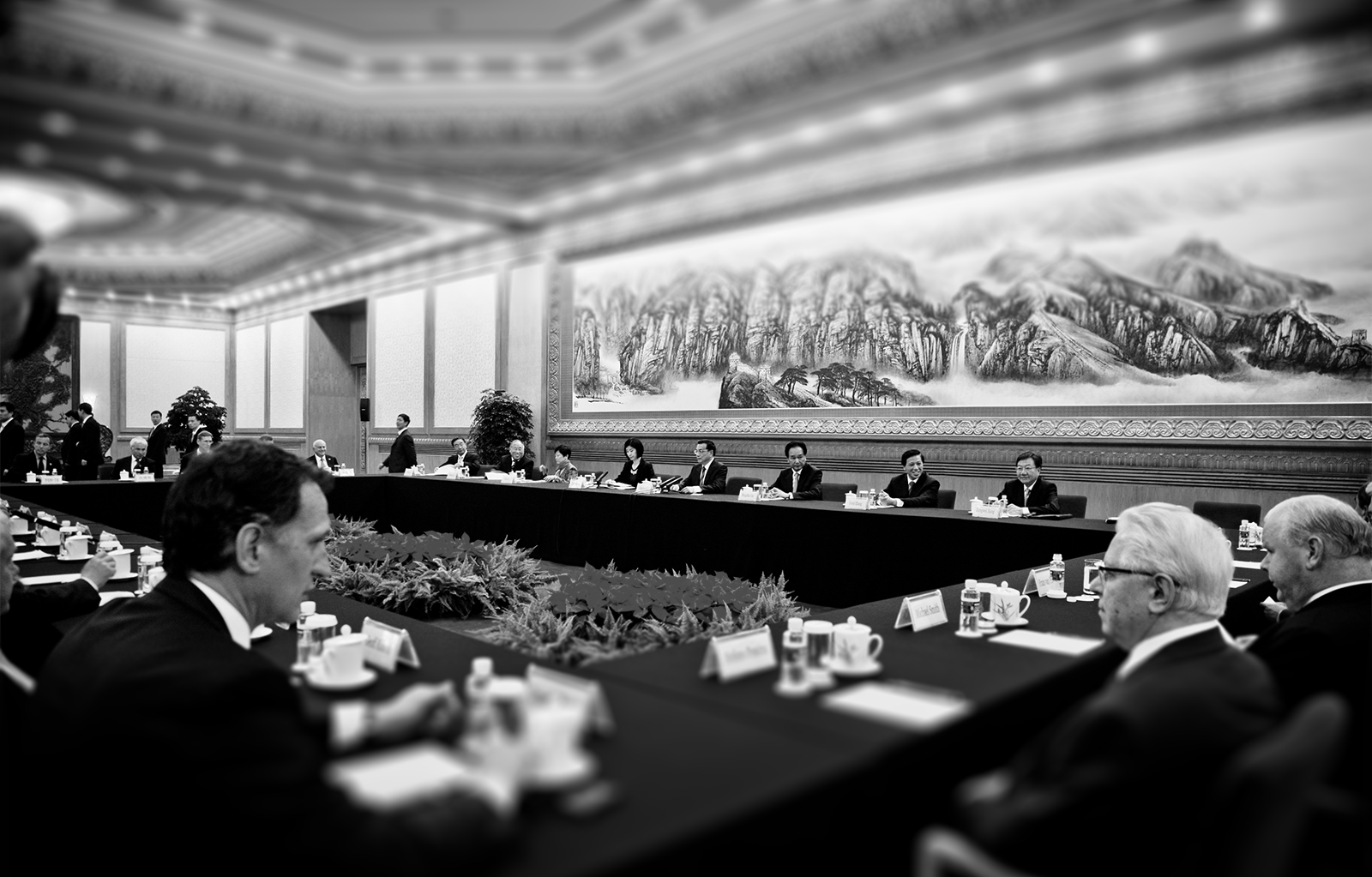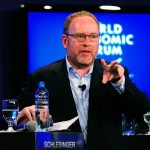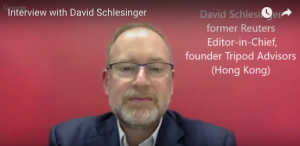- Former Global editor-in-chief of Reuters and Chairman, China of Thomson Reuters
- An expert in political risk analysis, offshoring, localization, labor relations, and acquisitions as well as all aspects of traditional, online and social media
- Founder and Managing Director of Tripod Advisors, a consultancy specializing in global media issues, China political risk and market access, and startup strategies and blockchain
- Former Global editor-in-chief of Reuters and Chairman, China of Thomson Reuters
- An expert in political risk analysis, offshoring, localization, labor relations, and acquisitions as well as all aspects of traditional, online and social media
- Founder and Managing Director of Tripod Advisors, a consultancy specializing in global media issues, China political risk and market access, and startup strategies and blockchain
David SCHLESINGER is former Global editor-in-chief of Reuters and Chairman, China of Thomson Reuters, with a three-decade career as a journalist and businessman that has given him a global perspective while maintaining a specialty in China and Asia. As global Editor-in-Chief of Reuters, the world’s largest multi-media international news service, he strategically remade the organization to deal with significant changes in the media, financial services, and information industries. He has deep experience with political risk analysis, offshoring, localization, labor relations, and acquisitions as well as all aspects of traditional, online and social media. His 30+ years’ experience with China and Asia includes government relations and negotiation at the highest levels.
He currently runs Tripod Advisors, a consultancy specializing in global media issues and China political risk and market access. Before founding Tripod, Schlesinger was Chairman of Thomson Reuters China and was the global information services group’s senior representative in the region. He was responsible for building relationships, providing thought leadership and advising on strategy for operations across Thomson Reuters interests in financial markets, legal and regulatory databases, scientific information and journalism. He was appointed to that role after four years as Editor-in-Chief of Reuters News, running all aspects of the 3,000-journalist strong international news service.
Before that, Schlesinger was Global Managing Editor of Reuters news for three years, in charge of the worldwide operations and news editing. Schlesinger joined Reuters Hong Kong bureau in 1987 as a correspondent. From 1989 to 1995, he ran Reuters editorial operations in Taiwan, China and the Greater China region in a series of posts. He then transferred to New York to serve in turn as Financial Editor, Managing Editor for the Americas and Executive Vice President and Editor of the Americas.
Schlesinger has served on the board of ChinaWeb, the parent of Hexun.com, China’s leading business/investing portal. He is on the board of the Committee to Protect Journalists and is a trustee of Index, the voice of free expression. Schlesinger is active in the World Economic Form, where he has served as a member of the International Media Council and the China Agenda Council, and is a member of the Council on Foreign Relations. In 2008, he was awarded an Emmy Lifetime Achievement Award for Business and Financial Reporting by the National Academy of Television Arts & Sciences in the United States. Schlesinger graduated from Oberlin College and has a Masters degree from Harvard University, where he concentrated on Chinese politics in the Regional Studies East Asia program.













 The Chairman “rethinks,” a journalist departs with a bang, and Bloomberg, which had led the way in authoritative investigative reports on the government/business nexus in China becomes instead the poster child for the ills of the business/pressure nexus in journalism.
The Chairman “rethinks,” a journalist departs with a bang, and Bloomberg, which had led the way in authoritative investigative reports on the government/business nexus in China becomes instead the poster child for the ills of the business/pressure nexus in journalism.